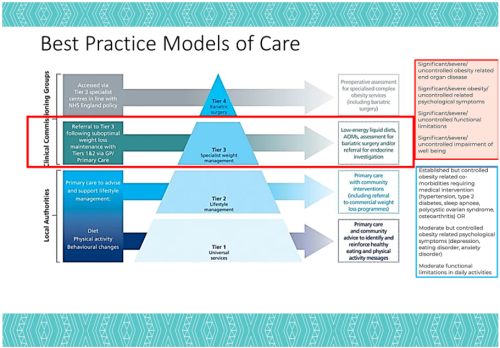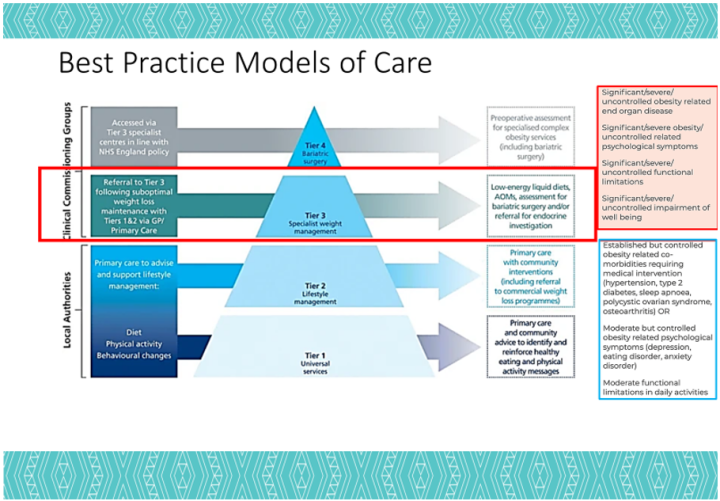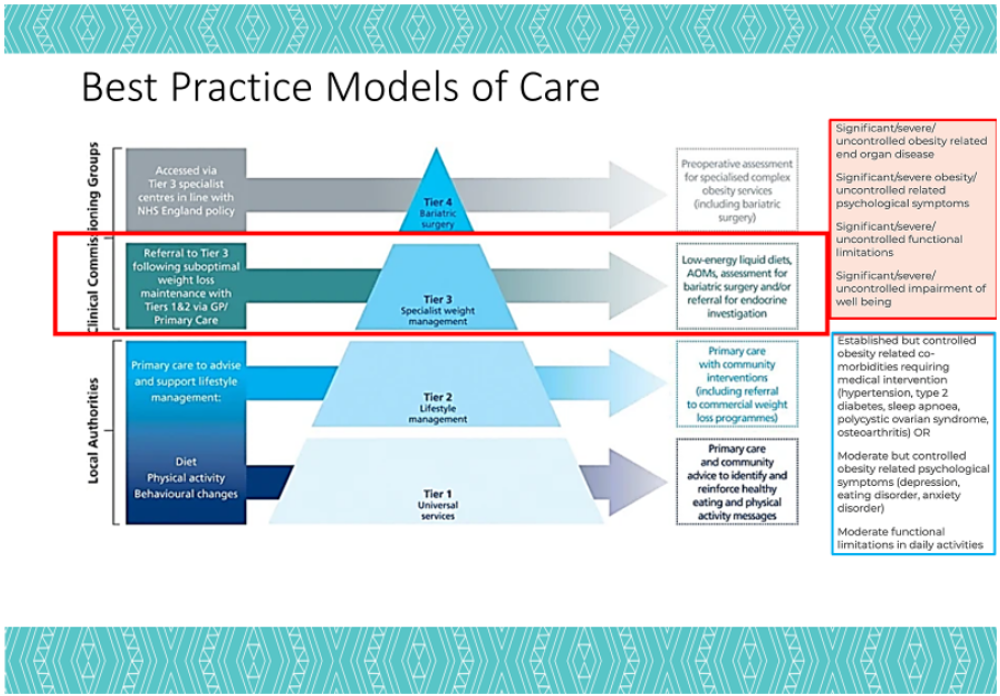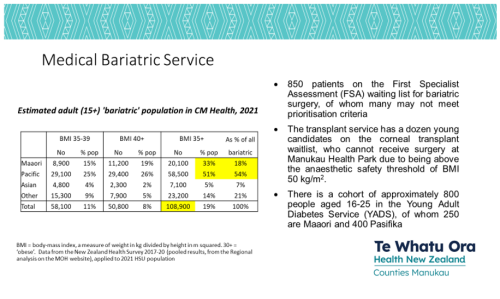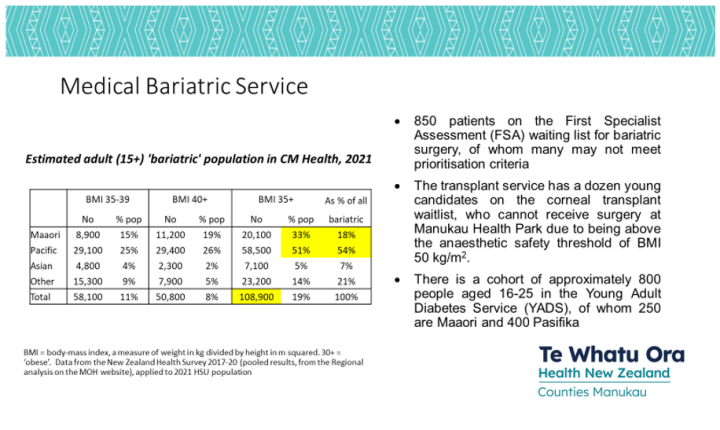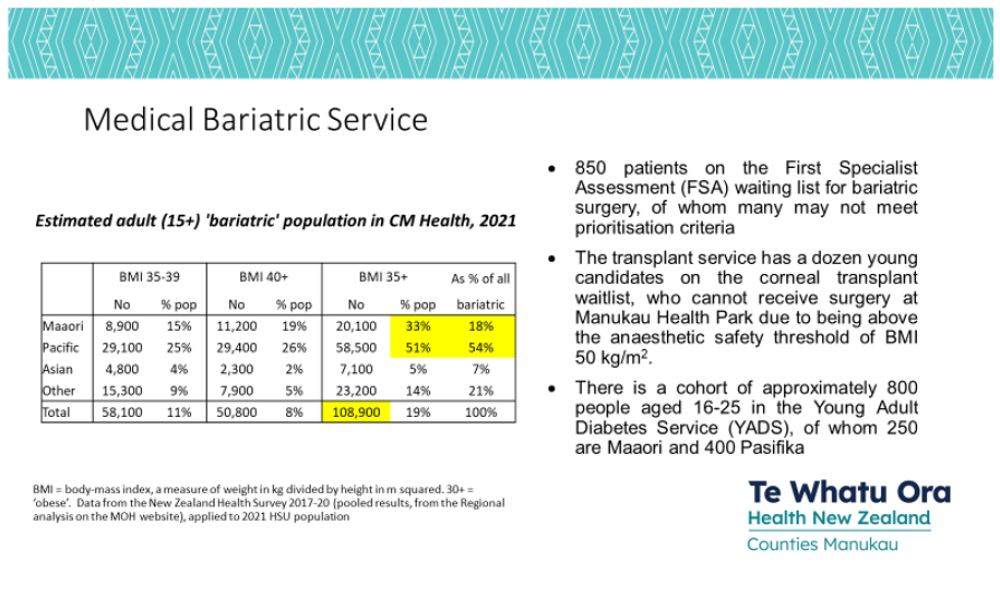A specialist bariatric medicine programme – the first of its kind in Aotearoa – is being launched in Te Whatu Ora - Counties Manukau to combat the region’s growing obesity issue. This is one of many programmes being funded to support people suffering from severe weight-related health issues – Counties Manukau alone has 108,000 people with BMI 35+.
Te Mana ki Tua includes wrap-around services to promote holistic well-being, low-energy diets, health coaching, psychosocial support, and healthy lifestyles for people suffering from severe weight-related health issues.
The programme also has a multi-specialist team with health coaches, dietitians, health psychologists, and endocrinologists.
But its key intervention is a specialist weight management/bariatric medicine programme that supports people and whānau as an alternative pathway for those not considering or not suitable for surgery.
The announcement of its June launch follows a recent Health Select Committee report that shows obesity levels in Counties Manukau at near epidemic proportions with seven out of every 10 adults either overweight or obese.
One in four Pasifika in the Counties Manukau district have a weight that will be affecting their health (a body mass index (BMI) of 35+) and for Māori, that number is one in six.
Counties Manukau has more than twice the BMI 35+ population of the next highest district in Aotearoa.
Counties Manukau has 108,000 people - or 17% of its entire population - in this 35+ BMI group.
Dr. Gary Jackson, Director of Population Health at Te Whatu Ora Counties Manukau says a combination of poor nutrition, weight gain, and a lack of physical activity are now the leading causes of preventable health loss in the region ahead of smoking.
He says in terms of the best practice model of care for weight management – Te Mana ki Tua is the missing link between primary care and bariatric surgery.
“We’ve never seen nor had this type of intervention in Aotearoa before,” says Dr. Jackson.
“A tier one intervention is things people do themselves like changing their diet and exercising. Tier two interventions involve primary care and community organisations to advise and support lifestyle management.”
“Te Mana ki Tua is these things but also tier three - the missing link between primary care and bariatric surgery, which is at tier four.”
Dr. Jackson says Te Mana ki Tua takes a holistic approach and invites whānau to also access the wraparound support.
It is being co-designed with Māori and Pasifika and is based on clinical evidence to give whānau the best chance of avoiding or even eliminating diabetes and cardiovascular disease, hypertension, sleep apnoea, and other weight-related health conditions.
Te Mana ki Tua will initially be offered to people referred but ineligible for bariatric surgery and to young adults living with type 2 diabetes and BMI above 35.
Dr. Jackson says Te Mana ki Tua has an extensive evaluation and a ‘test and learn’ component.
He expects the evidence from the programme could lead it to become a standard offering across the motu, but it cannot be stand-alone.
Te Whatu Ora Counties- Manukau also funds primary and community based programmes such as Te Ranga Ora that are targeted at people with less severe weight issues (Tier 1) but for whom supported weight loss management helps manage existing long term chronic conditions.
